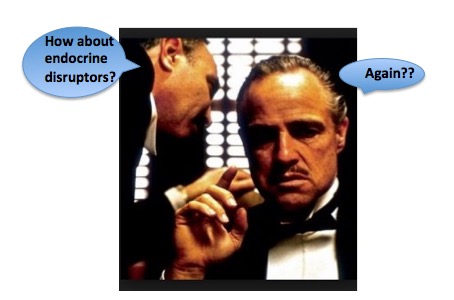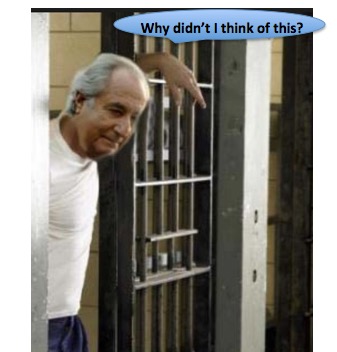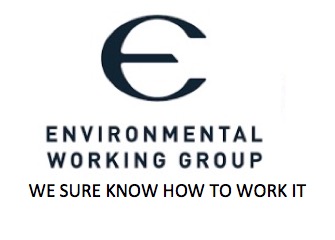
We all have our strengths and weaknesses. This holds true for individuals, companies, and NGOs. Let's focus on the Environmental Working Group. Although their science is generally appalling, they sure have marketing down to an art.
This can, in no way, be more apparent than the group's new program (scam?), which is called EWG Verified™. It's actually very clever. Let's say that you own a company whose label doesn't contain the names of enough scary sounding ingredients that are not in that product. Then how will you get people will pay extra (for no good reason) to buy what you're selling? How can you step it up? Pay off EWG, and the next thing you know—bang! You're on their list of "verified products." Cool! And if you don't, well, then you're hosed. Because you and all of the other companies that sell stuff that isn't EWG Verified™ are going to look like you're putting Sarin gas in the mouthwash. EWG is nothing if not consistent. If you look at the ingredients on it "EWG Unacceptable List," pretty much all of them either 1) cause cancer, or 2) are endocrine disruptors.

Could this be an EWG funding meeting?
Maybe that's not too far off. There is a lot of money to be made at the expense of companies that are desperate to sell their vegan club soda. First, you have to pay EWG $500 (non-refundable) just to apply for the right to be considered for the EWG Verified™ list. Then it gets expensive. From the EWG website:
How much does it cost to get EWG VERIFIED™?
"Costs for participation vary widely, generally ranging from hundreds of dollars to thousands of dollars per year based on factors such as: company size and stage of development, pricing structure options (some of which may include a royalty percentage fee on licensed product sales), number and sales of EWG VERIFIED™ products, and related considerations. Typical fees include an application fee, an evaluation fee (if applicable), and a trademark usage royalty or annual flat fee. The EWG VERIFIED™ license agreements generally are for an initial term of three years and include standard licensing provisions, including with respect to quality control."
Damn!

Bernie Madoff in the slammer. Photo adapted from Freaking News
Here are some of EWG's victims clients:
Desert Farms Camel Milk: "So join us in the Camel Milk Revolution—and thanks to everyone who makes Desert Farms a success!" Which is accompanied by the following photo:

Comment: Am I the only one who finds this photo more than a little disturbing?
Dolphin Organics: "My wife and I made the switch to organic in 1998. We shopped at Whole Foods, bought only organic and local products, and thought we were taking great care of ourselves. But then, in 2010, my father died of cancer. Which was shocking since he was a lifelong farmer who ate only what he grew. Our question was why? It made us think very critically about our lifestyle and what we could do to be even healthier. We quickly realized that while everything we were putting in our bodies was safe and natural."
Comment: Because we all know that people who eat the right foods never get cancer.
Honestly pHresh: "Dear natural product lover. If you’re reading this, you’re probably on the same clean cosmetics journey that I embarked on a long time ago, a lifestyle I continue to embrace every day. Knowing the dangers of so many of the toxic, synthetic products out there drove me to want to create my own clean products, especially so that my children and loved ones could have access to truly natural, safe products that actually work."
Comment: OK, this place sells deodorants, not heart valves.
I think you get it by now. Companies whose business plans consist of preventing cancer with "better" products than Whole Foods, detoxifying your body with a deodorant, and show photos that could make it onto a bestiality website, pony up fat fees to get on a list that is put together by an Environmental group. (1)
Does anyone see anything wrong with this picture?

Note:
(1) Does anyone else wonder why a group that is supposedly dedicated to the environment has anything to do with human health care—something they know damn little about? Just wondering?



